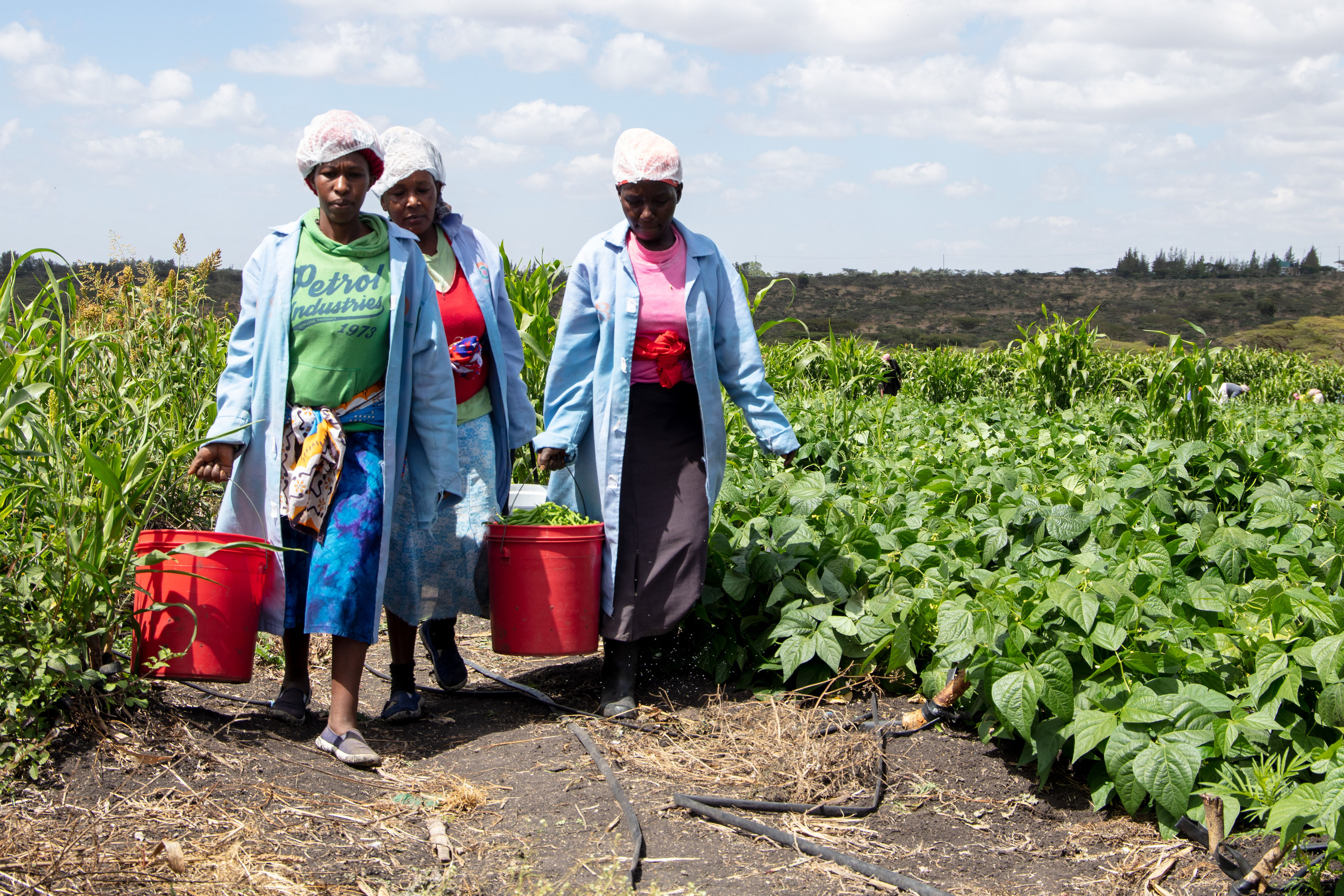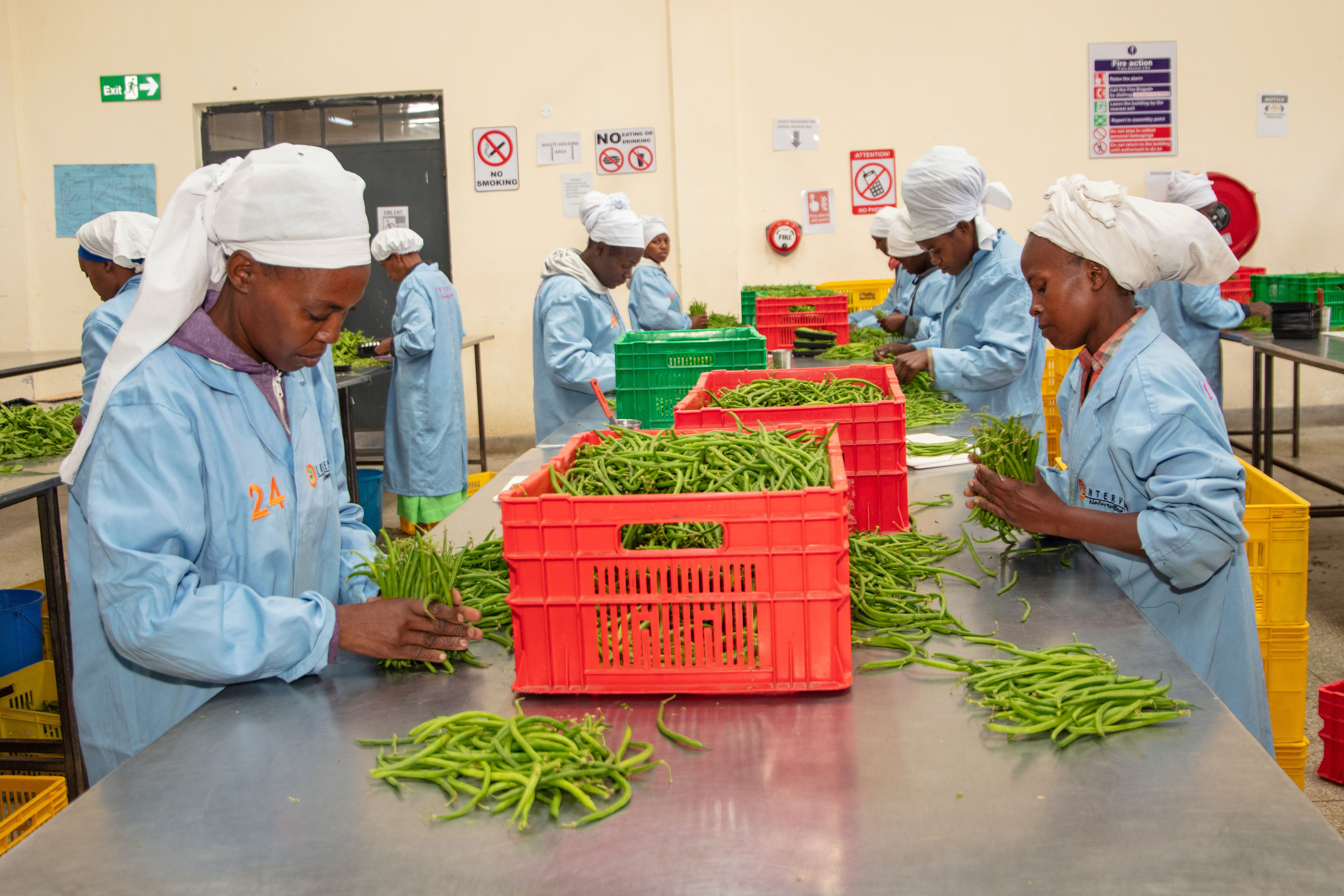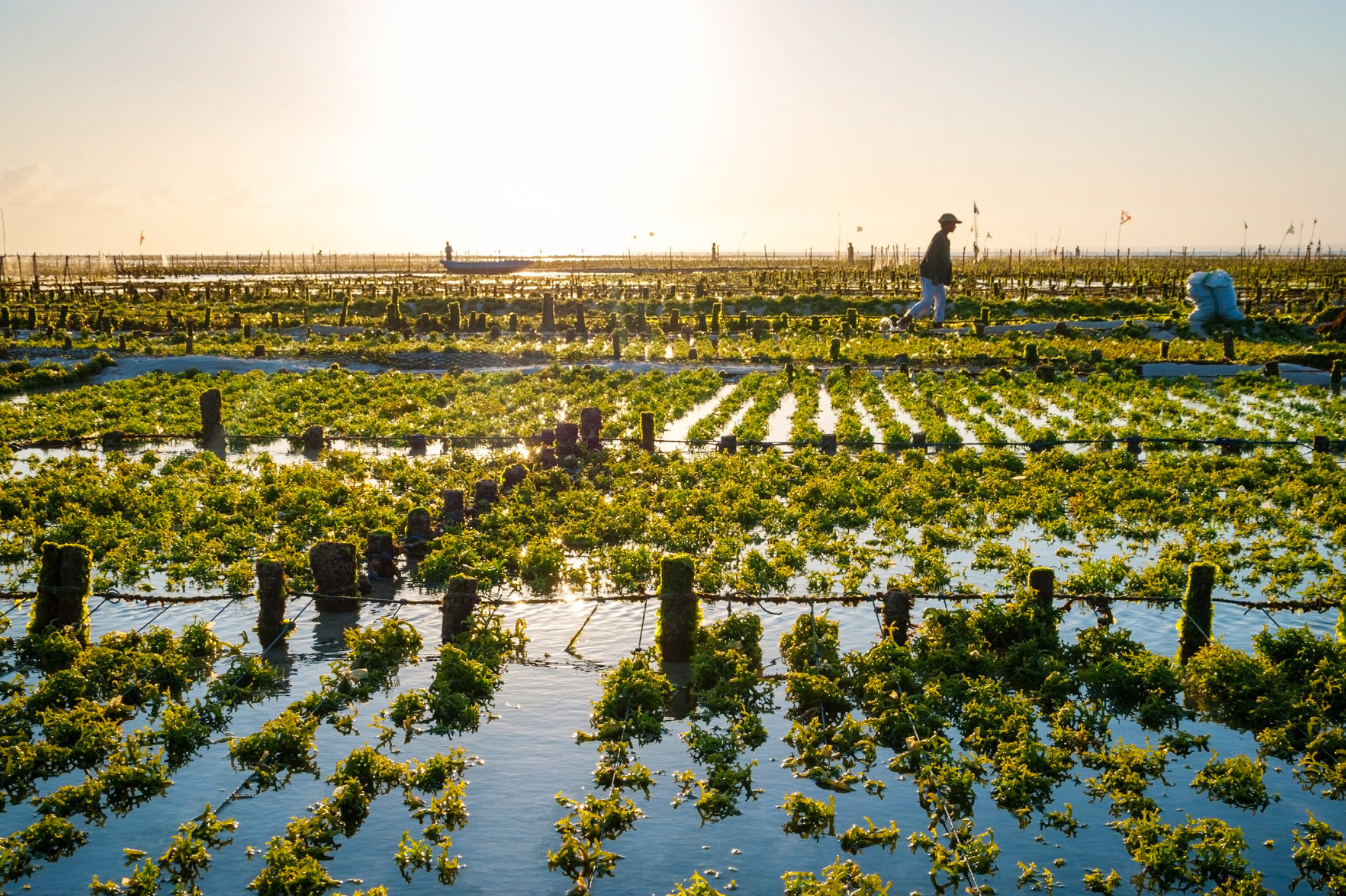Innovation boosts rise of fresh Kenyan produce on European shelves
Innovate UK Global Alliance Africa collaborated with the Fresh Produce Exporters Association of Kenya (FPEAK) to find innovative packaging solutions to extend shelf life of fresh produce during sea freight.

Freight route challenges
Kenya’s first attempt at moving fresh produce to Europe by sea was made in 2013 by exploring the possibilities of moving fresh roses from Kenya to the Netherlands. This experiment highlighted the risk of delays as a result of transshipment challenges as there was no direct connection between Kenya and UK/EU at the time. By 2021 there were more established routes and consistent volumes of goods which grew from fresh flowers to fruits and vegetables.
Despite the growth of freight by sea, more than 80% of Kenya’s fresh horticulture produce is still transported to global markets by air which is more costly and carbon intensive, and transports much less when compared to sea freight. This is due to the fact that quality of produce is compromised and shelf-life degradation hastened over the long-haul journey by sea. (It currently takes between 28 and 35 days to reach markets in Europe.)
Global markets
Europe, Kenya’s main export destination for fresh produce, has been actively pushing for decarbonisation of value chains that deliver fresh produce to their supermarket shelves and dining tables back home lending a voice to decarbonisation campaigns. In a report by the European Union Commission in Kenya, air freight constitutes about 2.5% of global carbon emissions, despite ferrying just 1% of total global cargo. In contrast, sea freight produces about 2.9% of carbon emissions and accounts for over 80% of global trade by volume and 70% by value.
The reliance of an expensive air freight to move Kenya horticultural produce to its key global markets has seen the business prove unsustainable for many local producers. The Fresh Produce Exporters Association of Kenya (FPEAK) sought to fix this problem, supported by Innovate UK’s Global Alliance Africa, by rolling out an Open Innovation Challenge to find innovative ways to increase shelf life and enable longer transportation times for perishable goods.
The East African country exported 390,000 tonnes of fresh horticulture produce in 2022, valued at $1 billion in 2022, and with sea freight having been identified as the most cost effective and environmentally friendly mode of transport the goal was focused on developing solutions that would ensure the integrity of produce is maintained throughout its month-long journey on the high seas.

Maximising produce life
FPEAK selected Saraya and Kenberry Consulting Ltd as challenge winners charged with two important remits of creating solutions that will prolong produce life before shipping at the growing phase and extending produce life during shipping.
Kenberry Consulting Ltd
Kenberry, in collaboration with Chrome Partners, has developed a proven, multi-layered, fungus-resistant packaging solution for fresh produce. “This solution extends the shelf life by more than to over 30 days”, says Kenberry Co-founder Rajiv Sharma. Kenberry conducted a successful sea trial from Kenya to the UK using a 40ft container with the product expected to hit the market by end of 2024.
According to Sharma, sustainable packages solution and fresh food packaging that reduces carbon footprints are expensive to manufacture locally adding that Kenberry is working on more cost-effective iterations that fully embrace circularity. At the moment though the innovators are happy their product has met the goal of extending produce shelf life while on transit.
Saraya
Saraya represents a Kenyan office of a Japanese company specialising in hygiene and sanitation products. Their innovation involves the introduction of hypochlorous acid (HOCl) using a prototype, dubbed the Sanistar machine, on produce before packing and shipping. This process they say eliminates 99.9% of pathogens and biofilm cultures.
Dennis Ntaara, the General Manager at Saraya Kenya affirms the use of hypochlorous to wash fresh produce before packing for shipment increases the shelf life by removing pathogens that would accelerate the rate at which food goes bad. He believes the innovation that is currently available for sale can increase incomes by up to 50%, by allowing farmers not to sell when the market prices do not favour them. “Our current challenge is how quickly can we get produce from farmers to the location since it is designed for large scale use,” adds Dennis. The Sanistar machine is currently available in the Kenyan market.
Global Alliance Africa supported the product development of the two solutions even as Kenya gears to move more than 50% of its fresh produce cargo to sea freight in a bid to make the local farmers more competitive in the global market place.
About Innovate UK Global Alliance Africa
Global Alliance Africa is a six-year project funded by UK International Development through Innovate UK (GCRF) and the Foreign, Commonwealth and Development Office (FCDO).

Follow us for more project updates
Twitter @IUK_Global
Instagram @WeAreGlobalAlliance
Webpage iuk.ktn-uk.org/programme/africa
Related programmes

Global Alliance Africa
This Innovate UK Global Alliance Africa 6-year (2019-2025) project funded by UK International Development aims to build new and stronger UK-African partnerships to maximise the creation of inclusive market access, funding and investment opportunities through innovation knowledge transfer between the UK, Kenya, Nigeria and South Africa.

Open Innovation
Open Innovation is the belief that good ideas can come from anywhere, so it is worth looking widely, beyond your usual supply chains. Innovate UK has well-established methods for supporting Open Innovation, having run 200+ innovation challenges across the world. Our model allows diverse collaborators to respond to shared industry challenges in a mutually beneficial way.

UK-Kenya Alternative Proteins Global Innovation Network
Delivered by Innovate UK Global Alliance Africa, this Global Innovation Network will tackle the dual challenge of rising protein demand and environmental concerns by fostering collaboration and innovation to foster sustainable and healthy alternatives, promoting economic growth, sustainability, and resilient food systems.


